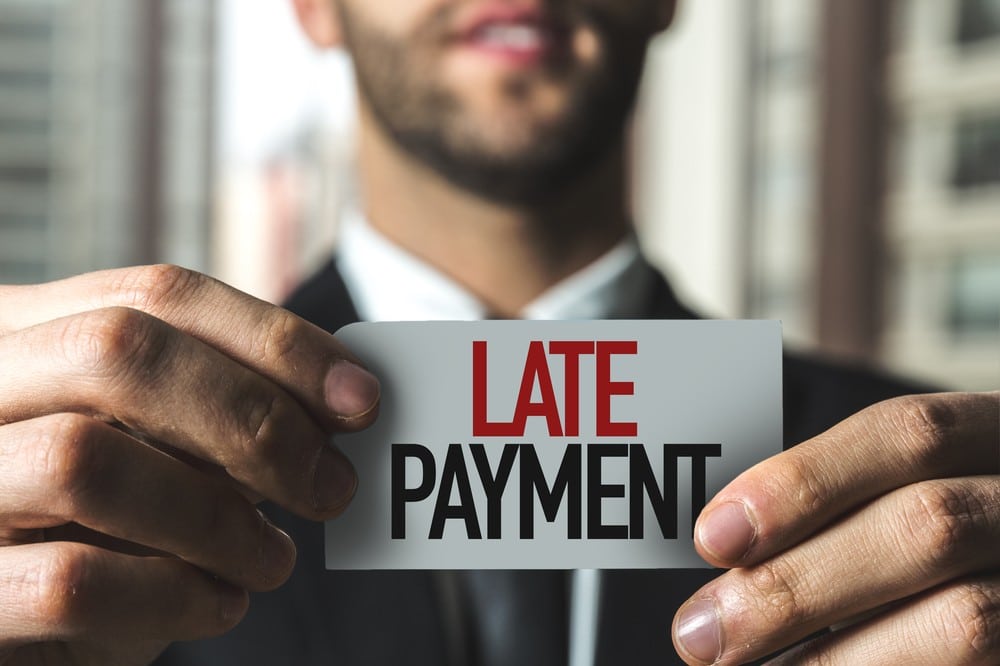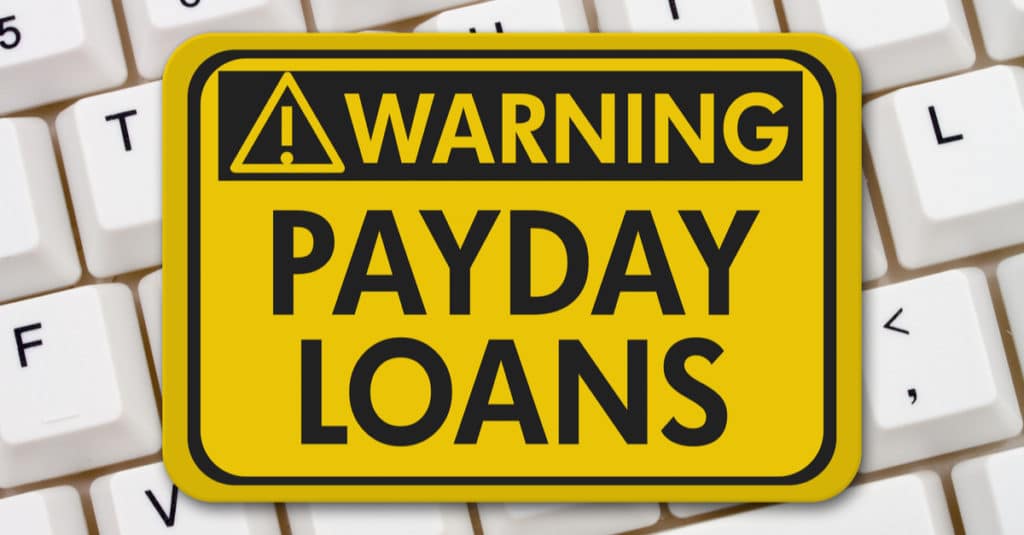In a world where financial stability is often just a paycheck away, many people face unexpected expenses that cannot wait until the next pay cycle. Whether it’s a medical emergency, a car repair, or a sudden bill, some individuals turn to payday loans as a quick and easy solution. These loans offer a rapid fix with minimal requirements—no credit check, quick approval, and fast access to cash.
However, what many borrowers fail to understand is that payday loans come with hidden dangers that can quickly turn a financial lifeline into a devastating burden. While payday loans seem like a simple solution for those in need, the reality is that they can lead to a vicious cycle of debt, high-interest rates, and financial instability.
This article will dive into the hidden dangers of payday loans, share cautionary tales of borrowers who have faced financial turmoil due to payday loans, and explore alternative financial solutions that may offer safer, more sustainable options.
Key Takeaways:
- Payday loans come with extremely high-interest rates and fees, often exceeding 400% APR.
- Short repayment terms make it difficult for borrowers to repay on time, leading to debt cycles.
- Rollovers and renewals only add more fees and interest, worsening the borrower’s situation.
- Alternative options like personal loans, credit cards, and borrowing from family and friends can offer better financial solutions.
- Financial counseling can help individuals struggling with payday loans explore debt management strategies.
What Are Payday Loans?
Payday loans are short-term, high-interest loans that are typically due on the borrower’s next payday, usually within two weeks or a month. The loans are designed to cover urgent expenses until the borrower receives their next paycheck. The application process is usually quick, requiring minimal documentation—often just proof of income, a valid bank account, and a government-issued ID.
While payday loans are marketed as a simple solution for financial emergencies, they come with significant risks, especially for those who rely on them repeatedly. Let’s explore these dangers in detail.
The Hidden Dangers of Payday Loans
Skyrocketing Interest Rates
One of the most glaring hidden dangers of payday loans is the exorbitantly high interest rates. Payday loans typically carry an annual percentage rate (APR) ranging from 300% to over 1,000%, depending on the lender and the state’s regulations. To put this into perspective, this APR is far higher than the rates on most credit cards, personal loans, or other forms of credit.
For example, let’s say you borrow $300 with a payday loan. In many cases, you might have to pay a $45 fee for borrowing that amount. While this might seem small at first, the APR on that loan could exceed 400%, making it extremely costly to repay, particularly if you are unable to do so on the agreed-upon payday. When calculated annually, the fees and interest can become overwhelming, creating a financial burden that’s difficult to escape.
Short Repayment Periods
Unlike traditional loans with flexible repayment terms, payday loans come with very short repayment periods—usually due within two weeks or on your next payday. While this might seem reasonable to some, the reality is that many borrowers do not have enough disposable income to repay the loan in full on such a short notice.
As a result, borrowers often struggle to pay off their payday loans on time, leading to the need for extensions or additional loans. This short repayment period is one of the main contributors to the cycle of debt many payday loan borrowers experience. A failure to repay the loan on time usually results in additional fees and interest, making it even harder to get out of debt.
The Debt Trap: Borrowing to Repay Borrowing
One of the most insidious hidden dangers of payday loans is the potential for borrowers to fall into a debt trap. When a borrower cannot repay their payday loan by the due date, many payday lenders offer to extend the loan (rollover) or provide another loan to cover the original debt. This practice might seem like an easy solution, but it often leads to a vicious cycle of borrowing and repaying that is hard to break.
In these situations, borrowers can find themselves trapped in an ongoing cycle of debt, where the original loan is never fully paid off, and new loans are taken to cover previous loans. As a result, the debt snowballs, accumulating fees, interest, and additional charges. The borrower continues to make payments, but the principal amount owed may remain the same or even increase. This perpetual debt cycle can lead to severe financial hardship.
Rollovers and Renewals: Additional Fees and Interest
If a borrower is unable to repay the payday loan on time, lenders may offer them the option of rolling over the loan. This means that instead of paying the loan in full, the borrower pays just the interest and fees, and the loan is extended for another term—often with an additional charge.
While this might provide temporary relief, rolling over the loan only compounds the problem. Borrowers are required to pay more interest on the loan, and the total debt continues to increase. For example, if you borrow $300, roll over the loan multiple times, and accrue $45 in fees each time, you could end up paying $180 in fees alone—on top of the original amount borrowed.
This cycle of rollovers can quickly become unsustainable and exacerbate the borrower’s financial difficulties.
Late Fees and Penalties

Many payday loan agreements include late fees and penalties for missing the repayment date. These fees can quickly add up, especially if the borrower continues to delay payment. In some cases, late fees can exceed $30 per missed payment. If a borrower is already struggling to repay the loan, these late fees create additional financial strain.
As these fees accumulate, it becomes increasingly difficult for the borrower to get out of debt. The fees often outpace the original amount borrowed, and the borrower becomes burdened with more debt than they can manage.
Legal Consequences of Non-Payment
If the borrower fails to repay the payday loan after repeated rollovers and extensions, the lender may resort to legal action. This could involve hiring a collection agency to pursue the debt or even filing a lawsuit. In extreme cases, the lender may take the borrower to court to recover the debt.
Legal action not only adds further financial strain but can also damage the borrower’s credit score. In some cases, wages can be garnished to pay off the debt, and assets may be seized.
Real-Life Cautionary Tales
To understand the full impact of payday loans, let’s look at some real-life examples of individuals who faced financial ruin after turning to payday loans.
Case 1: Mark’s Struggle with Debt
Mark, a 30-year-old single father, found himself in a tough financial situation when his car broke down unexpectedly. He had no savings to cover the repair costs and needed the car to get to work. With no other options available, Mark took out a payday loan for $400, agreeing to repay it in two weeks. However, when payday arrived, Mark found that he didn’t have enough money to cover the loan in full.
Rather than paying off the loan, Mark rolled it over, adding another $60 in fees to the original amount. As time went on, Mark continued to roll over the loan, but the debt kept accumulating. After several months, Mark had paid over $800 in fees alone, but the original loan remained unpaid. Eventually, the lender took legal action, and Mark had his wages garnished. The financial strain affected his ability to pay for other expenses, and he was left feeling hopeless.
Case 2: Sarah’s Growing Debt
Sarah, a 25-year-old recent college graduate, took out a payday loan for $200 to cover some unexpected medical bills. She planned to repay the loan in two weeks, but after a few days, her car broke down, and she found herself in another financial bind. Sarah took out a second payday loan to cover the original loan and car repair costs.
By the time she received her next paycheck, Sarah had accumulated $500 in payday loan debt, which she struggled to repay. She took out another payday loan, hoping to make it through, but the debt only grew larger. In less than a year, Sarah found herself with over $2,000 in payday loan debt, plus late fees and interest.
After speaking with a financial counselor, Sarah realized she could have avoided payday loans by seeking assistance through other means, such as negotiating medical bills or taking out a personal loan with a lower interest rate. By the time Sarah paid off the payday loans, she had accumulated far more debt than she originally intended, making it a difficult and painful financial recovery.
Alternatives to Payday Loans
If you’re facing a financial emergency, it’s important to explore other options before resorting to payday loans. Here are some safer alternatives:
Personal Loans
A personal loan from a bank or credit union can offer a lower interest rate than payday loans and a more manageable repayment schedule. Personal loans typically offer longer repayment periods and may be more flexible with repayment options.
Credit Cards

If you have access to a credit card, this can be a more affordable option compared to payday loans. Although credit cards carry interest, they usually offer lower rates than payday loans. Some credit cards even offer introductory 0% APR for balance transfers, which can help you manage emergency expenses without racking up interest charges.
Borrowing from Family and Friends
If possible, consider borrowing from a trusted family member or friend. This option often comes with no interest or fees, making it far more affordable than payday loans. Just be sure to establish clear repayment terms to avoid misunderstandings or strain on the relationship.
Credit Counseling and Debt Management Programs
If you’re already in a cycle of payday loan debt, consider seeking help from a credit counseling service. Credit counselors can help you create a budget, negotiate with creditors, and explore debt management programs that consolidate your loans into a more manageable monthly payment.
Emergency Savings Fund
If you don’t need immediate funds but want to avoid payday loans in the future, consider starting an emergency savings fund. Even a small savings cushion can help you cover unexpected expenses without needing to rely on high-interest loans.
What Happens If You Can’t Pay Back a Payday Loan?
Payday loans are often seen as a quick and easy solution for people who need cash urgently. With minimal requirements and a fast application process, they may seem like the answer to a financial emergency. However, payday loans come with high fees and very short repayment terms, which can quickly become difficult to manage. If you’re unable to repay a payday loan on time, it can lead to a series of financial challenges and consequences. Understanding what happens when you can’t repay a payday loan is critical in helping you avoid long-term financial stress.
In this article, we’ll explore the various outcomes of being unable to repay a payday loan, including potential fees, legal consequences, and how you can manage the situation to minimize damage to your finances.
Payday loans are typically due on your next payday, which could be within two weeks or a month. If you miss the repayment deadline, a few things could happen, depending on the lender’s policies and the laws in your state.
You Will Be Charged Late Fees and Penalties
If you don’t repay your payday loan on time, the lender will likely charge late fees. These fees are often a fixed amount or a percentage of the original loan amount, and they can add up quickly. For example, if you borrowed $300, you might face a late fee of $30 to $50 or more.
These fees, added to the original loan balance, make it even harder to pay off the debt. As the fees pile up, you may find yourself in a cycle of borrowing and paying late, leading to more debt than you originally owed.
The Loan May Be Rolled Over
Many payday lenders offer an option to “roll over” the loan if you’re unable to repay it on time. This means you can extend the loan for another term, but you will still have to pay additional fees and interest. Instead of repaying the original amount borrowed, you pay just the interest and fees and the loan is extended.
While this may provide temporary relief, rolling over the loan can quickly lead to a growing debt problem. The interest and fees compound over time, and you may end up paying far more than you borrowed. This is one of the reasons payday loans are often considered a debt trap.
For example, if you borrowed $300 and the payday loan rollover fees are $45, you may find yourself owing $345 by the time the loan is extended. If the loan is rolled over several times, the amount owed can escalate rapidly.
Your Loan May Be Sent to Collections
If you continue to miss payments or roll over the loan without repaying it, the lender may eventually send your loan to a collections agency. This is a serious consequence, as it could affect your credit score and result in persistent debt collection efforts.
Once your loan is in collections, you may be contacted repeatedly by debt collectors via phone, mail, or email. Some collectors may also take legal action to recover the loan amount. Debt collection can be stressful and can seriously affect your creditworthiness, making it harder to access loans or credit in the future.
Your Credit Score Could Be Affected

While payday lenders often don’t report your payments to the credit bureaus, failing to repay a payday loan could still damage your credit score. If your loan is sent to collections, it will show up on your credit report and impact your credit score.
A lower credit score can make it more difficult to qualify for future loans, credit cards, or even rental agreements. Additionally, you may face higher interest rates on future borrowing, which can further increase your financial burden.
You Could Be Sued
If the payday lender is unable to collect the debt through their normal channels, they may decide to take legal action. This could involve suing you in civil court to recover the amount owed. If the court rules in the lender’s favor, they could garnish your wages, freeze your bank account, or place a lien on your property to collect the debt.
Wage garnishment means that a portion of your paycheck would be deducted each pay period and sent directly to the lender or collections agency until the debt is paid off. This can significantly affect your ability to cover living expenses and lead to further financial struggles.
You Could Face Bank Account Seizure
In some cases, payday lenders may seek to access your bank account to recover the loan if they have obtained a judgment against you. If they are successful, they may be able to freeze your bank account or seize funds from your account. This could prevent you from accessing your money, making it harder to cover bills, rent, or other important expenses.
If payday lenders gain access to your bank account, you might also incur overdraft fees and other charges from your bank.
Also Read: Understanding The Fine Print In Payday Loan Agreements
Conclusion
While payday loans may seem like a quick fix to immediate financial challenges, the hidden dangers they pose can create long-term financial hardship. From high-interest rates and short repayment periods to the potential for falling into a debt cycle, payday loans are not a sustainable solution for managing financial emergencies.
By understanding the risks and exploring safer alternatives, borrowers can avoid the pitfalls of payday loans and find more effective ways to address their financial needs. Whether it’s through personal loans, credit cards, or borrowing from family and friends, there are better options available that won’t leave you trapped in debt.
FAQs
What is the maximum amount I can borrow with a payday loan?
The maximum loan amount varies by state and lender but is typically between $100 and $1,000.
Are payday loans regulated?
Yes, payday loans are regulated at the state level. Some states have imposed strict limits on payday loan interest rates and fees, while others have banned payday lending altogether.
Can payday loans impact my credit score?
Most payday lenders do not report to credit bureaus, but if the loan goes into collections, it can negatively affect your credit score.
How long do I have to repay a payday loan?
Payday loans are typically due within two weeks or on your next payday. However, some lenders may offer extensions or rollovers for an additional fee.
What happens if I can’t repay my payday loan?
If you can’t repay your payday loan, you may be charged additional fees, and the loan may be rolled over. The lender could also take legal action or send the loan to collections.
Is it possible to consolidate payday loan debt?
Yes, you can consolidate payday loan debt by taking out a personal loan or enrolling in a debt management program.
How can I avoid payday loans in the future?
Start by building an emergency savings fund, exploring alternative lending options, and creating a realistic budget to handle unexpected expenses.

